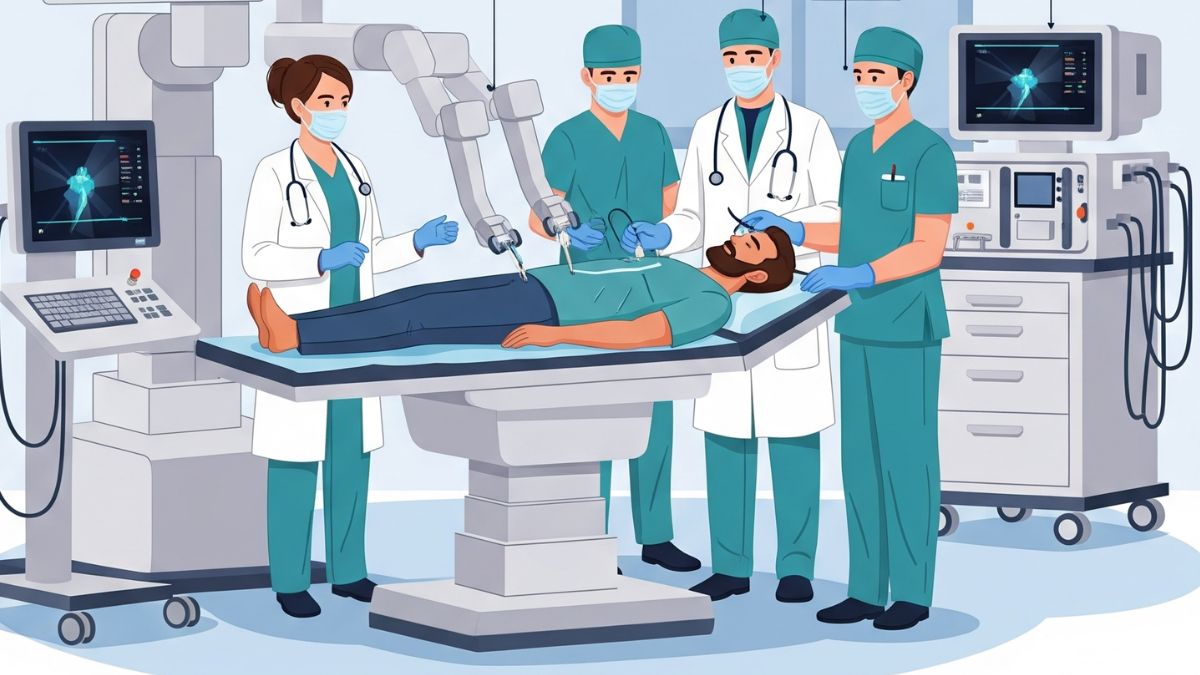Decoding Prostate Cancer Risk: It's More Than Just Age – Genetics & Lifestyle Play Key Roles
)
Prostate cancer is a significant health concern for men globally, and India is no exception, ranking as the fourth most prevalent cancer among males. While age is a known risk factor, emerging research highlights the crucial roles of genetics and lifestyle choices in determining an individual's susceptibility. Early detection is paramount for successful treatment, and understanding these factors can empower men to take proactive steps towards safeguarding their health.
The Silent Threat: Early Symptoms & Why Prompt Detection is Vital
One of the biggest challenges with prostate cancer is its often asymptomatic nature in the initial stages. This means many men are unaware they have the disease until it has progressed. Potential symptoms, though often subtle, can include: frequent urination, difficulty starting or stopping urination, weak urine flow, blood in urine or semen, and pain in the lower back, hips, or thighs. However, it's important to note that these symptoms can also be indicative of other, less serious conditions. Therefore, regular screening and awareness are critical.
Beyond Age: The Genetic Landscape
While age is undeniably a risk factor (incidence increases significantly after 50), genetics are increasingly recognized as a powerful determinant of prostate cancer risk. Men with a family history of prostate cancer, particularly in first-degree relatives (father, brother, or son), have a considerably higher chance of developing the disease. Specific gene mutations, such as BRCA1 and BRCA2 (also associated with breast and ovarian cancer), have been linked to increased risk. Genetic testing can provide valuable insights for men with a strong family history, allowing for personalized screening and preventative strategies.
Lifestyle Factors: What You Can Control
The good news is that lifestyle modifications can significantly influence prostate cancer risk. Several factors have been identified as potentially protective:
- Diet: A diet rich in fruits, vegetables, and whole grains, while limiting red meat and processed foods, is associated with a lower risk. The Mediterranean diet, in particular, has been linked to positive outcomes.
- Exercise: Regular physical activity is beneficial for overall health and may reduce prostate cancer risk.
- Weight Management: Obesity is linked to an increased risk of aggressive prostate cancer. Maintaining a healthy weight through diet and exercise is crucial.
- Smoking: Smoking has been associated with a higher risk of advanced prostate cancer. Quitting smoking is one of the most impactful steps men can take to protect their health.
- Vitamin D: Some studies suggest a link between adequate vitamin D levels and a reduced risk of prostate cancer.
Screening and Early Detection: Your Best Defense
Regular prostate cancer screening is essential, especially for men with risk factors. The two primary screening methods are:
- Digital Rectal Exam (DRE): A physical exam where a doctor feels the prostate for any abnormalities.
- Prostate-Specific Antigen (PSA) Test: A blood test that measures the level of PSA, a protein produced by the prostate gland. Elevated PSA levels can indicate prostate cancer, although they can also be caused by other conditions.
Discuss screening options with your doctor to determine the most appropriate approach based on your individual risk factors.
Conclusion: Empowering Men Through Knowledge
Prostate cancer is a serious disease, but with increased awareness, early detection, and proactive lifestyle choices, men can significantly reduce their risk and improve their chances of successful treatment. Don't wait – take control of your health today. Consult with your healthcare provider about your individual risk factors and screening recommendations.






